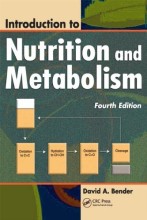Psychobiology of Food Choice and Eating Behaviour - TOX testing
9 important questions on Psychobiology of Food Choice and Eating Behaviour - TOX testing
Diet related chronic diseases such as obesity and T2D are largely avoidable and are a result of...
- The foods we choose
- the quantity (portion) we consume
- the frequency we consume them (dietary patterns)
Why we focus on sensory in a nutritional context?
Food choice and intake are more strongly influenced by sensory and cognitive aspects of eating than the underlying nutritive properties of the food consumed.
Chronic disease and ill health are influenced by the prolonged exposure to diets with poor nutritive properties and high energy![]()
Chronic disease and ill health are influenced by the prolonged exposure to diets with poor nutritive properties and high energy
Why is restricting dietary energy intake hard?
- diets often taste bad
- leave you feeling hungry
- focus on eating less
- leave you feeling hungry
- focus on eating less
- Higher grades + faster learning
- Never study anything twice
- 100% sure, 100% understanding
Palatability =
Desire to eat =
Reward value of food =
Prospective consumption =
Palatability =
how much I would like to eat this food right now
Desire to eat =
how great is my desire to eat right now (liking vs wanting)
Reward value of food =
how willing I am to work (pay more/wait) for a food reward
Prospective consumption =
how much I think I can eat right now
how much I would like to eat this food right now
Desire to eat =
how great is my desire to eat right now (liking vs wanting)
Reward value of food =
how willing I am to work (pay more/wait) for a food reward
Prospective consumption =
how much I think I can eat right now
What do you know about protein and satiety?
- Protein most satiating compared with carbs and fats
- protien -> low concentrations -> solid
- many different type of protein: animal, plant
- protein intake is regulated (due to protein turnover)
What do you know about carbs and satiety?
- Less satiating than protein, more satiating than fat
- taste; can be consumed as sweet simple carbs or savoury complex carbs (starches)
- food form: liquid sugards and solid sugars
- high glycemic CHO - impact on hunger?
What do you know about carbs and satiety?
- Less satiating than protein, more satiating than fat
- taste; can be consumed as sweet simple carbs or savoury complex carbs (starches)
- food form: liquid sugards and solid sugars
- high glycemic CHO - impact on hunger?
What is the Australian paradox?
Long term availability and intake of sugars in the diet is decreasing (not increasing) - yet BMIs continue to rise![]()
What do you knwo about fats and satiety?
- Fat is energetically potent (9 kcals/g) but sensorially difficult to detect
- considered the least satiating due to its high energy density and low weight
- makes foods soft, smooth, easy to eat
- it becomes more difficult to detect at higher taste intensities
Try our study magic for free
a PDF, study it super fast
- No sign up, email or credit card needed!
- AI makes unlimited flashcards
- Get unlimited quizzes and tests
- Ask AI anything
Create a notebook
- No sign up, email or credit card needed!
- Have and keep perfect overview
- Make flashcards, notes and mind maps
- Review, test and score!
The question on the page originate from the summary of the following study material:
- A unique study and practice tool
- Never study anything twice again
- Get the grades you hope for
- 100% sure, 100% understanding
Remember faster, study better. Scientifically proven.





























